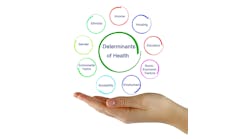The Global Alliance for Genomics and Health (GA4GH) has published a paper reviewing the diverse approaches being taken around the world to integrate genomics into healthcare and presenting a roadmap for sharing strategies, standards, and data internationally to accelerate implementation.
The paper, released Jan. 3 in the American Journal of Human Genetics, notes that while genomic sequencing has traditionally been a research tool, genomic data in the clinical setting will outpace research genomics within the next five years, with 60 million genomes expected to be sequenced by 2025. By 2030, China hopes to reach its goal of adding another 100 million genomes through the Chinese Precision Medicine Initiative. (Saudi Arabia, Estonia, Finland, Denmark, Japan, and Qatar are all developing their own national strategies.)
“The international genomics community has a responsibility to work together to effectively and efficiently role out clinical-based genomics care for the benefit of all,” said Kathyrn North, director of Australian Genomics and Murdoch Children’s Research Institute and lead author on the paper, in a prepared statement. “If we don’t get this right, patients will be the ones to suffer.”
After summarizing the national genomics strategy in the United States, U.K., France and Australia, the authors stress the importance of “breaking down data silos to accelerate the development of knowledge databases that directly improve patient outcomes cannot be underestimated.” Because national regulatory frameworks are unlikely to allow large-scale data migration, innovative solutions will be required to enable federated data analysis without data movement across geographical borders while maintaining public trust.
GA4GH is working with national genomic medicine programs to promote best practices in data sharing by structuring data access and consent processes, collecting clinical and genomic data in interoperable formats, committing to global data sharing, and informing public debate and policy development. The group recently launched a 5-year strategic plan, GA4GH: Connect, that focuses on the development of standards for responsible sharing of clinical-grade genomic, phenotypic and metadata. Genomics England, Australian Genomics, and All of Us in the United States serve as early “Driver Projects” for GA4GH, to inform the iterative development of tools and policies for data sharing, test them under real conditions and disseminate best practice.
“Without global inter-program dialogue and collaboration, clinical implementation stands to proceed in a haphazard fashion,” said co-author Brad Ozenberger, program official for the Data and Research Center for the All of Us Research Program at the U.S. National Institutes of Health, in a prepared statement. “This could mean inappropriate testing at high cost, inaccurate data interpretation, misdiagnosis, and policy that extends existing healthcare inequalities.”

